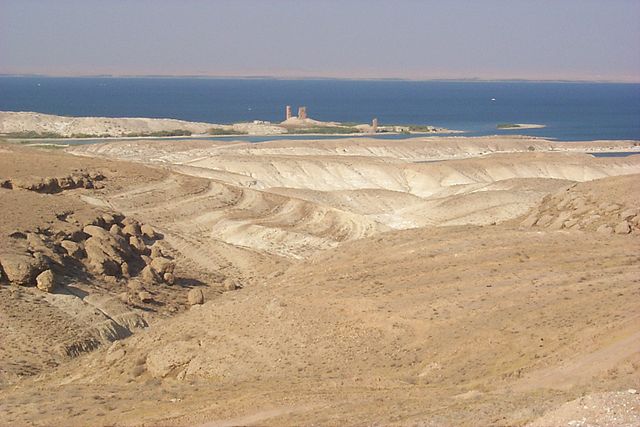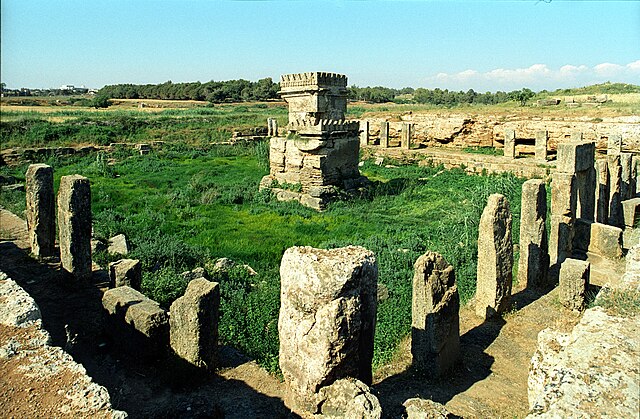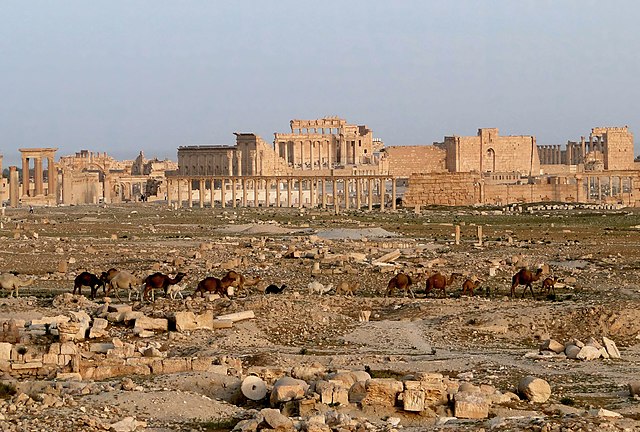Emar, is an archaeological site at Tell Meskene in the Aleppo Governorate of northern Syria. It sits in the great bend of the mid-Euphrates, now on the shoreline of the man-made Lake Assad near the town of Maskanah. It has been the source of many cuneiform tablets, making it rank with Ugarit, Mari and Ebla among the most important archaeological sites of Syria. In these texts, dating from the 14th century BC to the fall of Emar in 1187 BC, and in excavations in several campaigns since the 1970s, Emar emerges as an important Bronze Age trade center, occupying a liminal position between the power centers of Upper Mesopotamia and Anatolia–Syria. Unlike other cities, the tablets preserved at Emar, most of them in Akkadian and of the thirteenth century BC, are not royal or official, but record private transactions, judicial records, dealings in real estate, marriages, last wills, formal adoptions. In the house of a priest, a library contained literary and lexical texts in the Mesopotamian tradition, and ritual texts for local cults. The area of Emar was fortified by the Romans, Byzantines, and medieval Arabs as Barbalissos or Balis but that location is slightly removed from the more ancient tell and is dealt with in its separate article.

View from the Byzantine Tower at Meskene, ancient Barbalissos
Syria, officially the Syrian Arab Republic, is a country in West Asia located in the Eastern Mediterranean and the Levant. It is bounded by the Mediterranean Sea to the west, Turkey to the north, Iraq to the east and southeast, Jordan to the south, and Israel and Lebanon to the southwest. Cyprus lies to the west across the Mediterranean Sea. It is a unitary republic that consists of 14 governorates (subdivisions). A country of fertile plains, high mountains, and deserts, Syria is home to diverse ethnic and religious groups, including the majority Arabs, Kurds, Turkmens, Assyrians, Circassians, Armenians, Albanians, Greeks, and Chechens. Religious groups include Muslims, Christians, Alawites, Druze, and Yazidis. The capital and largest city is Damascus, followed by Aleppo, Homs, Latakia, Hama, Deirezor, and Raqqa. Arabs are the largest ethnic group, and Sunni Muslims are the largest religious group. Syria is now the only country that is governed by Ba'athists, who advocate Arab socialism and Arab nationalism.

Female figurine, 5000 BC. Ancient Orient Museum.
Ishqi-Mari, king of the Second Kingdom of Mari, circa 2300 BC.
Amrit Phoenician Temple
Ancient city of Palmyra before the war





